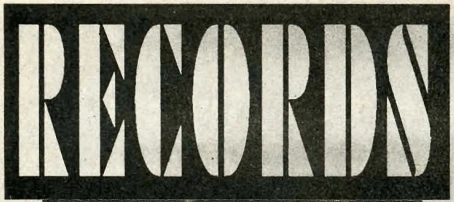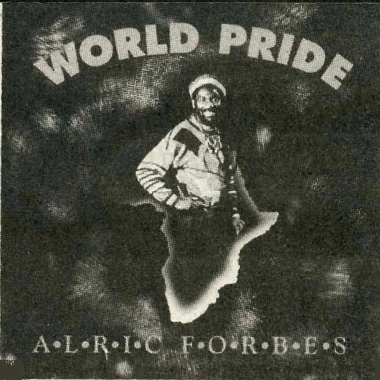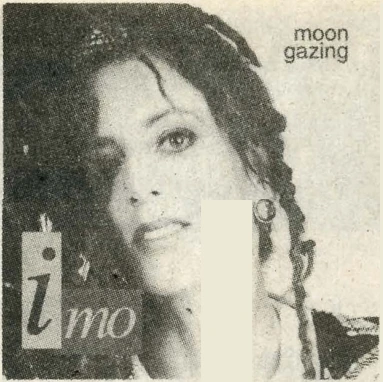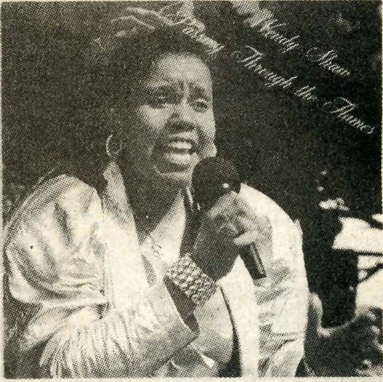
Record Reviews: August 1993
Archived
Alric Forbes
World Pride
World Pride is a testament that Alric Forbes learned his lessons well while doing his homework and paying his dues. Very, very well! His years of association with Yabby You and the Prophets, The Gladiators, and The Defenders have paid off. Mature and confident vocals coupled with strictly principled lyrics describe World Pride, an album that is as conscious and rootsy as they come.
Six years in production and recorded at studios in Kingston and Seattle, World Pride features former Gladiators Clinton Fearon on bass and Clinton Rufus on lead guitar. Errol “Tarzan” Nelson supplies keyboards and the drums of Leroy “Horsemouth” Wallace can be heard on a couple of tracks. From the first cut, “Peace on Earth,” to the tenth, “Leave Babylon and Come,” this album is strongly reminiscent of a bygone era of reggae music: that era when sincere, heartical lyrics were expected and the word “slack” referred to loose ropes or some such. “Mr. Cop” tells the all too autobiographical story of a Jamaican dread having his first encounter with American police while a gentle niceness takes hold on “My Love” and “Do You Feel Love.” The timelessness of the lyrics provides the substance of this album. Tunes such as “Look How Long,” “Hungry Belly” and “Soft Answer” reflect what I once naively thought would be the sound of all reggae, always. No dancehall. No hip-hop. No sampling or scratching. Just roots, roots and more roots.
Imo
Moon Gazing
 Off stage and out of the recording studio Imo is a professional astrologer. My guess is that she also understands the mysteries of crystals, the benefits of body massages and the values of meditation. She seems like the type of person that I fondly and respectfully refer to as a “Mystic Jammer.” Thus, it makes sense that she takes her name, pronounced “Eye mo,” from the seed syllable “Om” as seen in the name of Queen Omega and that her second album would be titled Moon Gazing. It also makes sense that Imo lists “Picky and Choosy,” with its lyrics “just wait/meditate” as one of her favorite cuts. She sings of love and lust, trust and mistrust, heartfelt and often hurtful truths, doing so with feeling and intensity that suggest that each of her songs are openly autobiographical.
Off stage and out of the recording studio Imo is a professional astrologer. My guess is that she also understands the mysteries of crystals, the benefits of body massages and the values of meditation. She seems like the type of person that I fondly and respectfully refer to as a “Mystic Jammer.” Thus, it makes sense that she takes her name, pronounced “Eye mo,” from the seed syllable “Om” as seen in the name of Queen Omega and that her second album would be titled Moon Gazing. It also makes sense that Imo lists “Picky and Choosy,” with its lyrics “just wait/meditate” as one of her favorite cuts. She sings of love and lust, trust and mistrust, heartfelt and often hurtful truths, doing so with feeling and intensity that suggest that each of her songs are openly autobiographical.
Moon Gazing is produced by Earl “Chinna” Smith and is instrumentally backed by Jamaican and American all star musicians with Judy Mowatt, Marcia Griffiths and Sharon Forrester providing backup vocals. Written lyrics are included with the attractively-packaged liner notes. The notes also include a bounce back card that invites fans to send for “an illustrated book offering further insight to the songs.” Moon Gazing (the book) is 28 pages of lyrics, explanations, photographs and drawings that provide interesting and thoughtful dimensions to the album.The standout track is “Margarita,” a tale of the jealousy-driven murder of Jamaica’s first female reggae singer. It is a sad story that ended when her lover/murderer, Don Drummond, perhaps Jamaica’s best trombonist ever, died in a mental hospital.
Taken as a whole package, Moon Gazing, the album and the book, are guaranteed award-winners.
Wendy Shaw
Passing Through the Flames
The work of Wendy Shaw was first introduced to me in 1989 as “conscious reggae music at its best” with the release of her debut album Praise His Majesty. If that statement was true for her first album then “Passing Through the Flames” is “better than best.” Vocally strong and lyrically responsive with real musicians playing real music on real instruments, Passing Through the Flames is upbeat, upful and refreshingly welcome. Wendy, a Los Angeles-born, naturalized Jamaican, sings proudly and exuberantly of her love and commitment to Jah Rastafari as she is instrumentally backed by the Roots Radics and the horns of Dean, Nambo and Chico.
Subject matter and content are unvarying: “Listen to me people when I say King Selassie love will never die” (from “He’s An African”). And, perhaps some small comfort to recent water-soaked hurricane survivors, “Believe it Or Not” reminds us that “as it was in the beginning, so it shall be in the end … Jah Jah gonna come with fire, not going come with no water.”
Co-produced and arranged by Dwight Pinkney, Passing Through the Flames has no dancehall, no slackness, no hip-hop or house mixes and no “gun tings,” just ten inspirational tracks showcasing both Wendy and her faith in H.I.M. Black Uhuru said it best: “What a joy to hear the utterance of a Rasta.” (Issachar Productions, Los Angeles, CA 213- 299-9881) —Papa Pilgrim
Read more from the SLUG Archives:
Record Reviews: April 1993
Concert Reviews: August 1992
